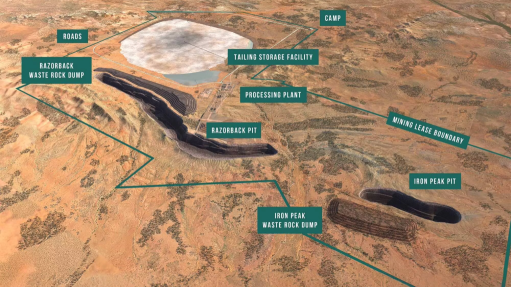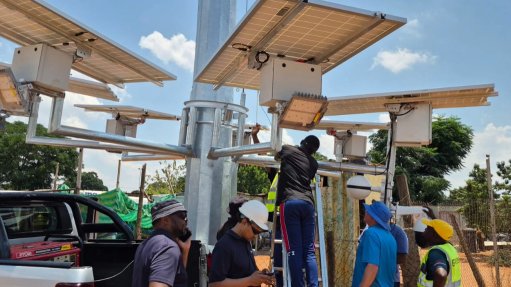Greater coordination needed to realise green-hydrogen aspirations

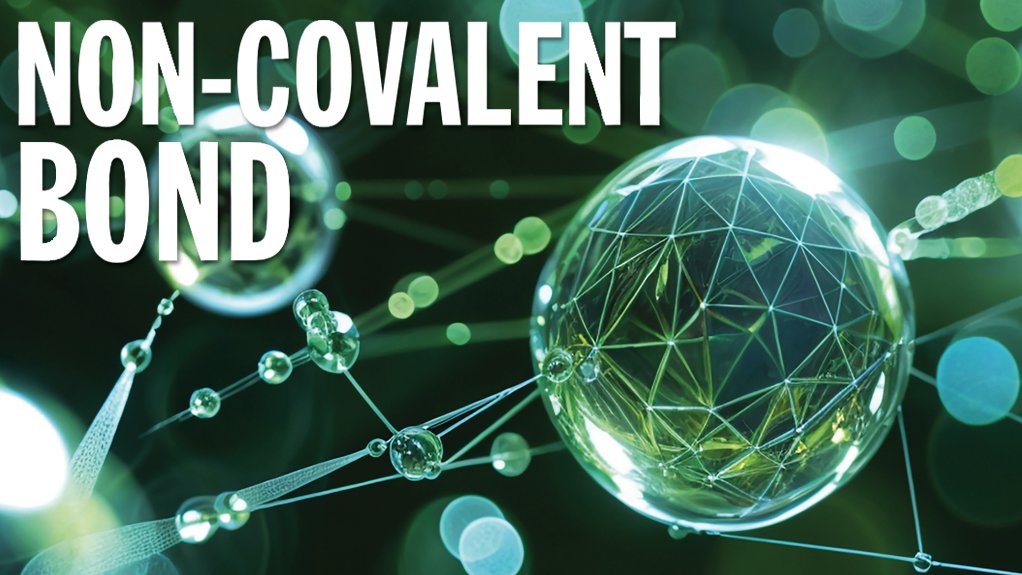
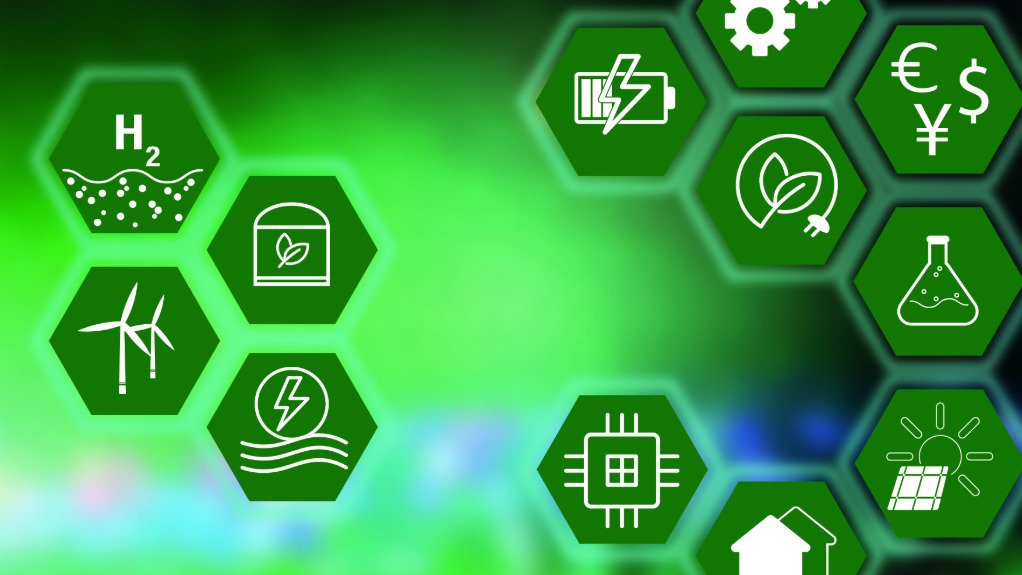
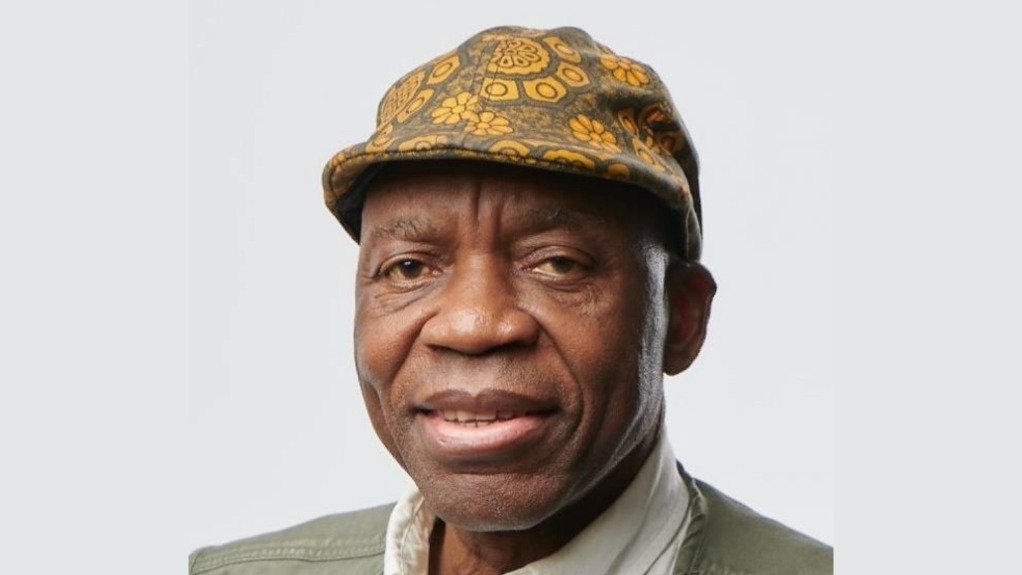
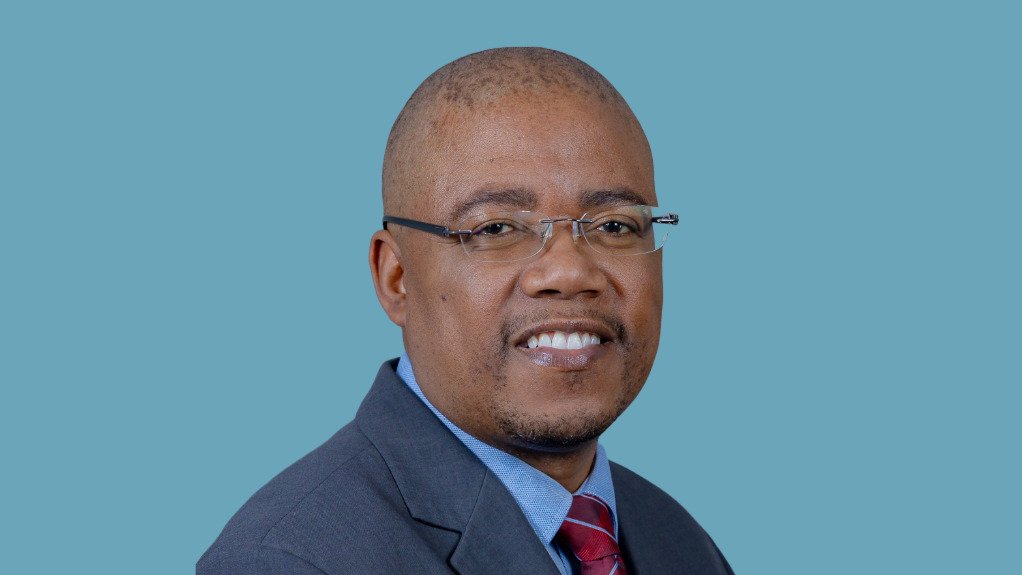
COORDINATION NEEDED Although the realisation of a hydrogen economy seems tantalisingly near, a lack of coordination is delaying progress
MASHUDU RAMANO A much more coherent approach to developing the hydrogen economy is needed
ZEPH NHLEKO The conversation on the hydrogen economy is now where the renewable-energy conversation was in the early 2000s
Despite enthusiasm for the development of a hydrogen economy from the public and private sectors, there remains a significant lack of coordination to effectively implement projects and bring the dream of a green hydrogen economy to life, according to energy technology company Mitochondria Energy System CEO and founder Mashudu Ramano.
"What I think is necessary, is a coordinated effort throughout the various government entities and departments to have a single sort of point of contact coordinating these developments," he said during a webinar hosted by Creamer Media earlier this month, where a roadmap to develop a green hydrogen value chain in South Africa was discussed.
Although the Department of Science and Innovation (DSI), the Industrial Development Corporation (IDC), the Department of Forestry, Fisheries and the Environment, as well as the Presidency were all involved, they worked separately, Ramano noted.
“We need a much more coherent approach . . . If we can develop the use of hydrogen in our economy and energy sector, we will create a much more dependable, secure energy sector that is not dependent on fluctuations in the oil markets around the world. If we can do that, South Africa would become a significant economy with stable energy provision.”
Policy & Technology
Such collaboration was starting to take shape, DSI power director Dr Cosmas Chiteme argued, while highlighting government support for hydrogen projects in South Africa.
He noted that government’s policy support – in the form of the Hydrogen Society Roadmap, approved by Cabinet in 2021 and released through the DSI in February 2022 – was followed by the Green Hydrogen Commercialisation Strategy that was led by the Department of Trade, Industry and Competition.
"From a policy perspective, I think South Africa is at a point where there is clear direction and clear support from government. What we need now to do is to try to create an enabling environment for projects to be executed."
Chiteme outlined three key factors required to ensure the successful development of a hydrogen economy in South Africa: industrial and manufacturing capabilities, research and development capabilities, and a sufficient natural resource endowment.
According to Chiteme, the country is well positioned to meet all the requirements.
A key indicator of government’s support for hydrogen development is its approval in 2007 of the Hydrogen South Africa Research, Development, and Innovation Strategy, which laid the foundation for local hydrogen economy development.
Government has funded the research, development and innovation programme consistently since 2008, and has extended the programme by another ten years.
"Through that research, development and innovation programme, we have been able to create a very healthy portfolio of intellectual property along the hydrogen and fuel cell value chain," Chiteme said.
This includes advances in platinum group metals- (PGM-) based catalysts, and membrane electrode assemblies, as well as hydrogen storage technologies such as metal hydrides.
"We believe that, with all that capability, we have set ourselves up to be a very significant player within the global hydrogen economy value chain, and all those technologies are now being taken to market through collaboration between government and the private sector.
Financing & Infrastructure
Despite policy support and an enabling environment, the challenge of financing green hydrogen projects remains significant.
PGM miner Impala Platinum sustainable development executive Dr Tsakani Mthombeni highlighted this issue by referencing a 2023 report from the International Energy Agency, which indicates that only 5% of hydrogen projects globally are reaching the final investment decision stage.
Funding was critical, and financing hydrogen projects required innovative and collaborative solutions, as there was insufficient funding available in the national fiscus, development finance institution (DFI) Development Bank of Southern Africa (DBSA) chief economist Zeph Nhleko concurred.
South Africa has about 45 DFIs and development finance agencies, with a collective asset base of about R346-billion, which could be leveraged to finance and develop the hydrogen sector.
"I feel the conversation on the hydrogen economy is more or less where the renewable-energy conversation was in the early 2000s, so there’s still a few critical roles that DFIs should play at this early execution stage," Nhleko added.
One such role is in policy advocacy and technical assistance, with DFIs supporting government efforts to ensure green hydrogen is integrated into the national energy mix.
Additionally, regulatory and contractual frameworks must be developed to support hydrogen project development, which Nhleko compared to the importance of setting up the independent power producer procurement system for renewable-energy projects.
The second role is project preparation, which entails proper project scoping and conducting feasibility studies to ensure that projects are bankable.
"Project preparation contributes to the very important task of derisking projects to enable even more private-sector participation," he said.
Early-stage project preparation and support are crucial, as projects must be bankable to attract investors.
"The last role that is important at this early stage is developing the hydrogen infrastructure. This will help us to ensure that there’s a successful hydrogen economy to facilitate things like storage, transmission and distribution," he said.
A 2023 McKinsey report, which reviewed about 1 000 large-scale hydrogen projects globally, identifies a significant global financing gap of $380-billion in hydrogen development to 2030. Of this shortfall, about 36% pertains to infrastructure development in the sector.
In response to this gap, Nhleko said the DBSA had taken steps to create a funding platform specifically for South Africa. The bank partnered with Sanlam, the IDC and two Dutch companies to establish the South African Hydrogen Fund.
The fund is structured into two tranches: a development capital tranche valued at $100-million and an equity construction tranche valued at $1-billion. The first tranche is allocated for supporting early-stage project preparation, and the second for the construction of hydrogen projects.
Nhleko explained that the development capital tranche had been fully raised, with plans to finalise the necessary documentation for partnerships, subscription and agreements by December.
The equity construction tranche is divided into three tiers: a junior tier of $200-million, an ordinary equity tier of $400-million and a senior equity tier of $400-million. The aim is to close the tranche by April next year, ensuring that, upon completion of early-stage project preparation, investors can move forward with the construction phase.
Technology Development
The panel also noted the import role of private companies in advancing the hydrogen economy by developing technologies that can be deployed locally.
"Our focus is to develop technologies and industrialise [them] on a large scale," Robert Bosch Africa sales and marketing manager Willem Ford said, describing the company’s approach to scaling up industrial hydrogen technologies.
Ford discussed plans to integrate hydrogen technologies into the company’s plant, in Brits, in the North West province, including on-site hydrogen production and compression for electrification during evening cycles.
Robert Bosch Africa is also exploring opportunities to help other nearby industry players use hydrogen as a decarbonised fuel.
"This will help companies reduce their carbon footprint and enable them to earn green certificates, which can be used to improve competitiveness in export markets." Ford added.
He concluded that this approach could contribute significantly to South Africa’s decarbonisation efforts while promoting the growth of the hydrogen economy.
Article Enquiry
Email Article
Save Article
Feedback
To advertise email advertising@creamermedia.co.za or click here
Press Office
Announcements
What's On
Subscribe to improve your user experience...
Option 1 (equivalent of R125 a month):
Receive a weekly copy of Creamer Media's Engineering News & Mining Weekly magazine
(print copy for those in South Africa and e-magazine for those outside of South Africa)
Receive daily email newsletters
Access to full search results
Access archive of magazine back copies
Access to Projects in Progress
Access to ONE Research Report of your choice in PDF format
Option 2 (equivalent of R375 a month):
All benefits from Option 1
PLUS
Access to Creamer Media's Research Channel Africa for ALL Research Reports, in PDF format, on various industrial and mining sectors
including Electricity; Water; Energy Transition; Hydrogen; Roads, Rail and Ports; Coal; Gold; Platinum; Battery Metals; etc.
Already a subscriber?
Forgotten your password?
Receive weekly copy of Creamer Media's Engineering News & Mining Weekly magazine (print copy for those in South Africa and e-magazine for those outside of South Africa)
➕
Recieve daily email newsletters
➕
Access to full search results
➕
Access archive of magazine back copies
➕
Access to Projects in Progress
➕
Access to ONE Research Report of your choice in PDF format
RESEARCH CHANNEL AFRICA
R4500 (equivalent of R375 a month)
SUBSCRIBEAll benefits from Option 1
➕
Access to Creamer Media's Research Channel Africa for ALL Research Reports on various industrial and mining sectors, in PDF format, including on:
Electricity
➕
Water
➕
Energy Transition
➕
Hydrogen
➕
Roads, Rail and Ports
➕
Coal
➕
Gold
➕
Platinum
➕
Battery Metals
➕
etc.
Receive all benefits from Option 1 or Option 2 delivered to numerous people at your company
➕
Multiple User names and Passwords for simultaneous log-ins
➕
Intranet integration access to all in your organisation








